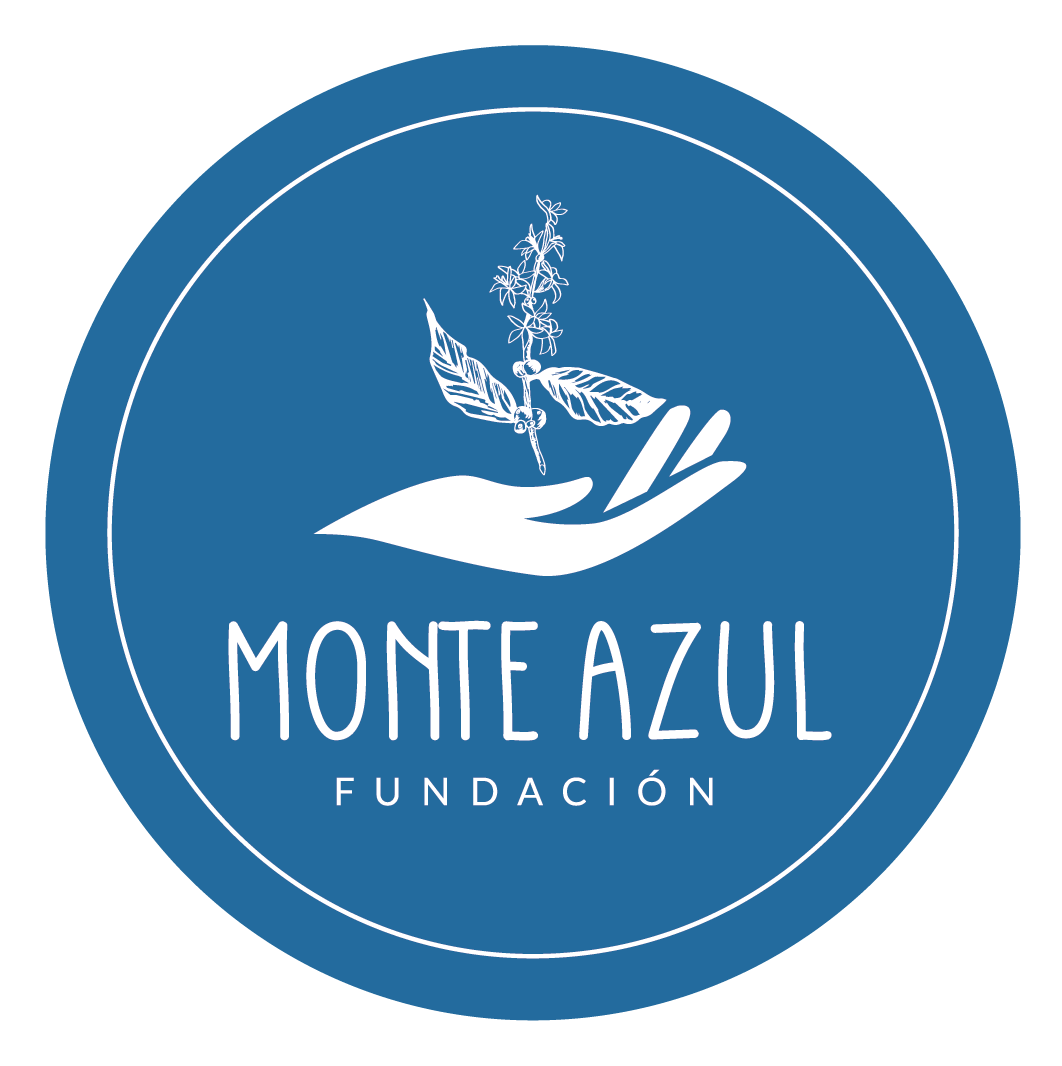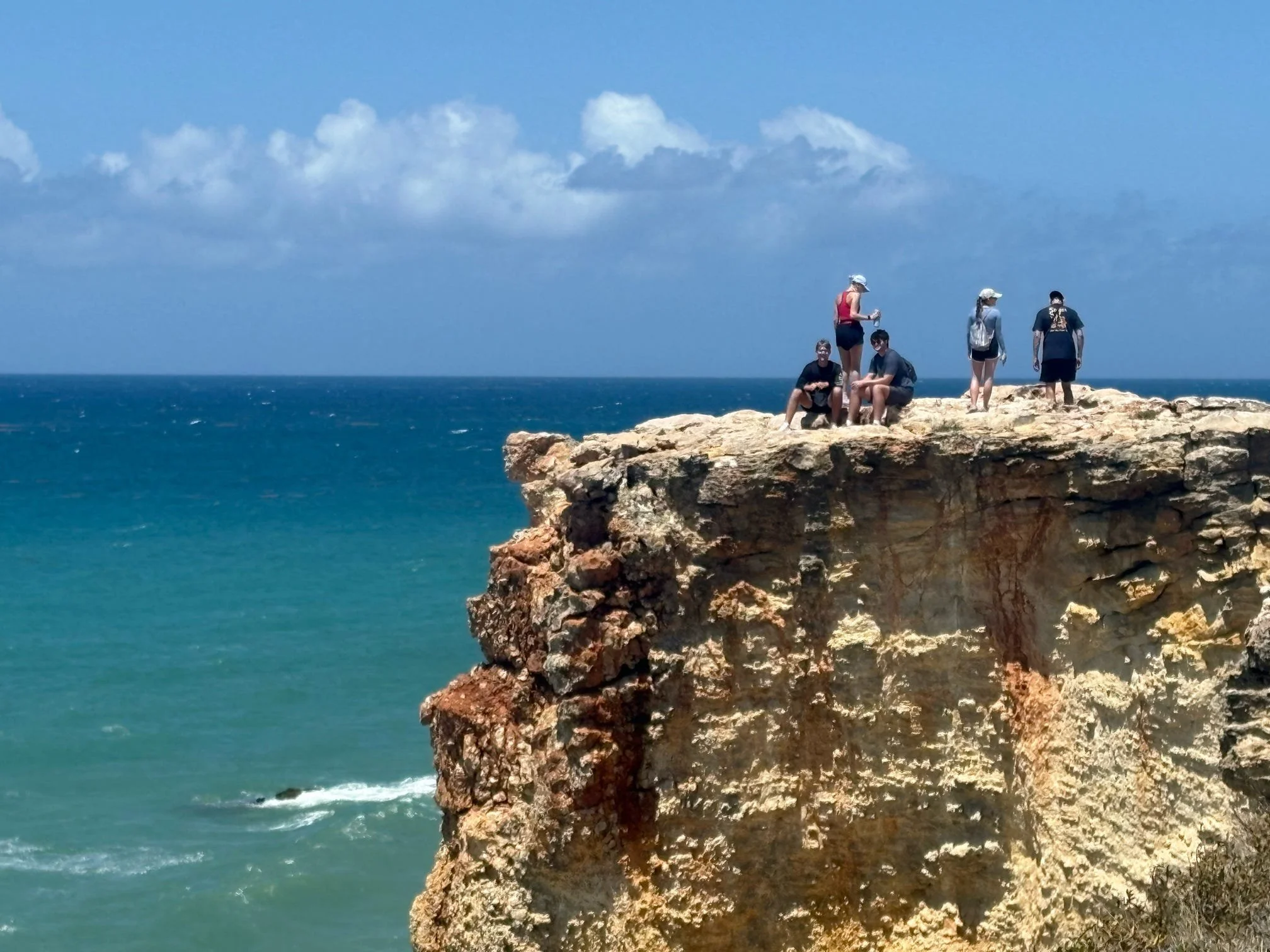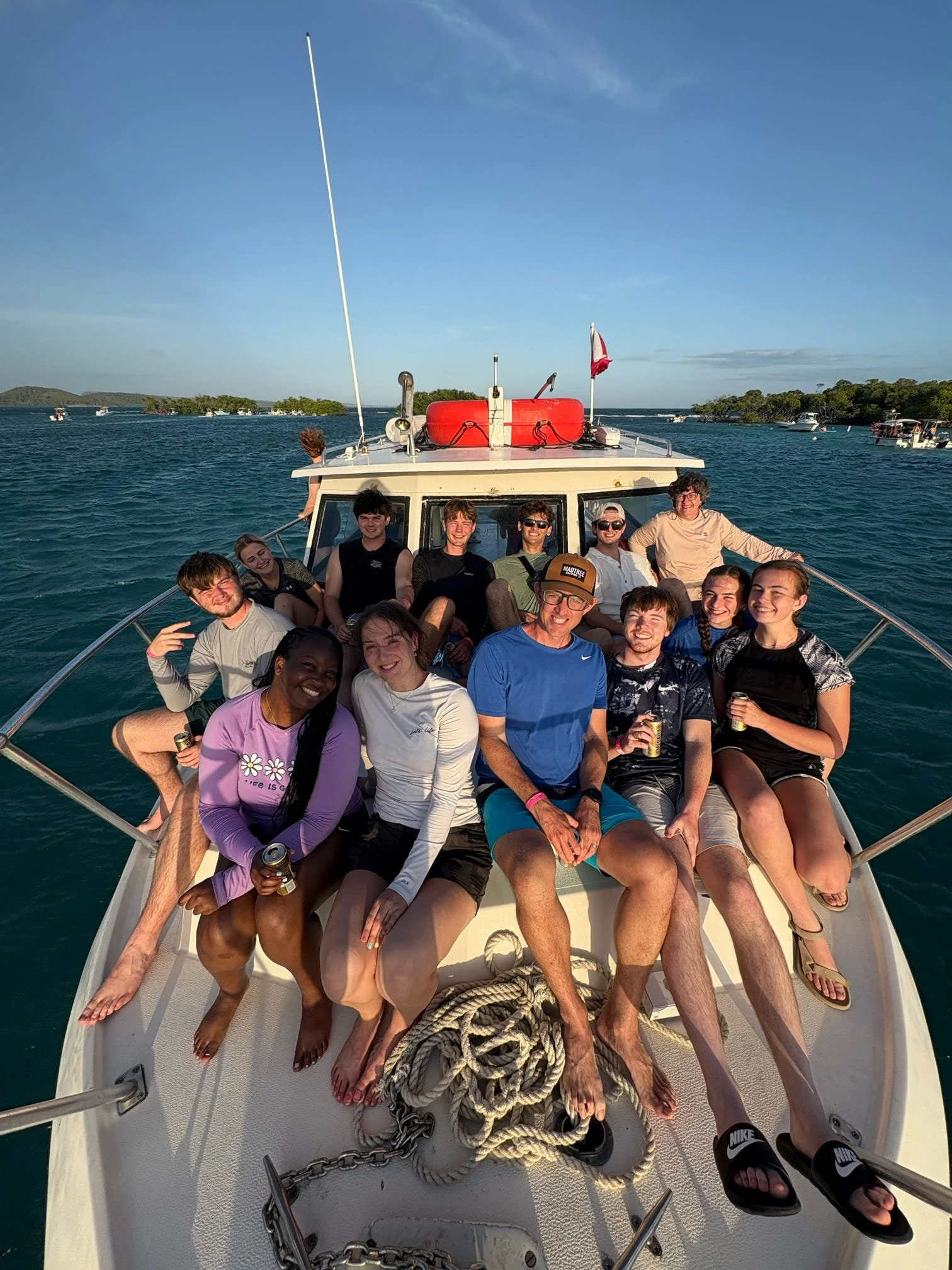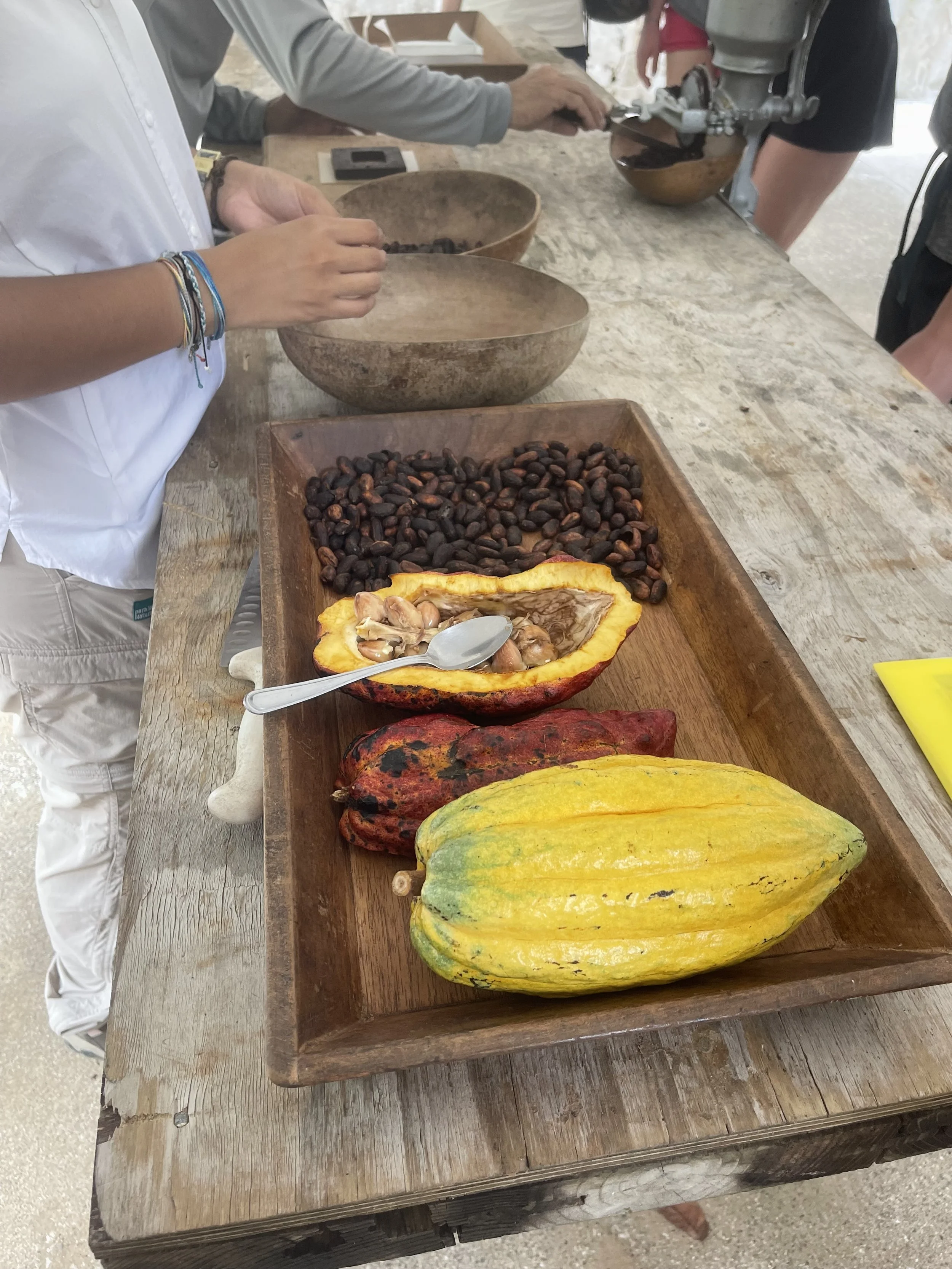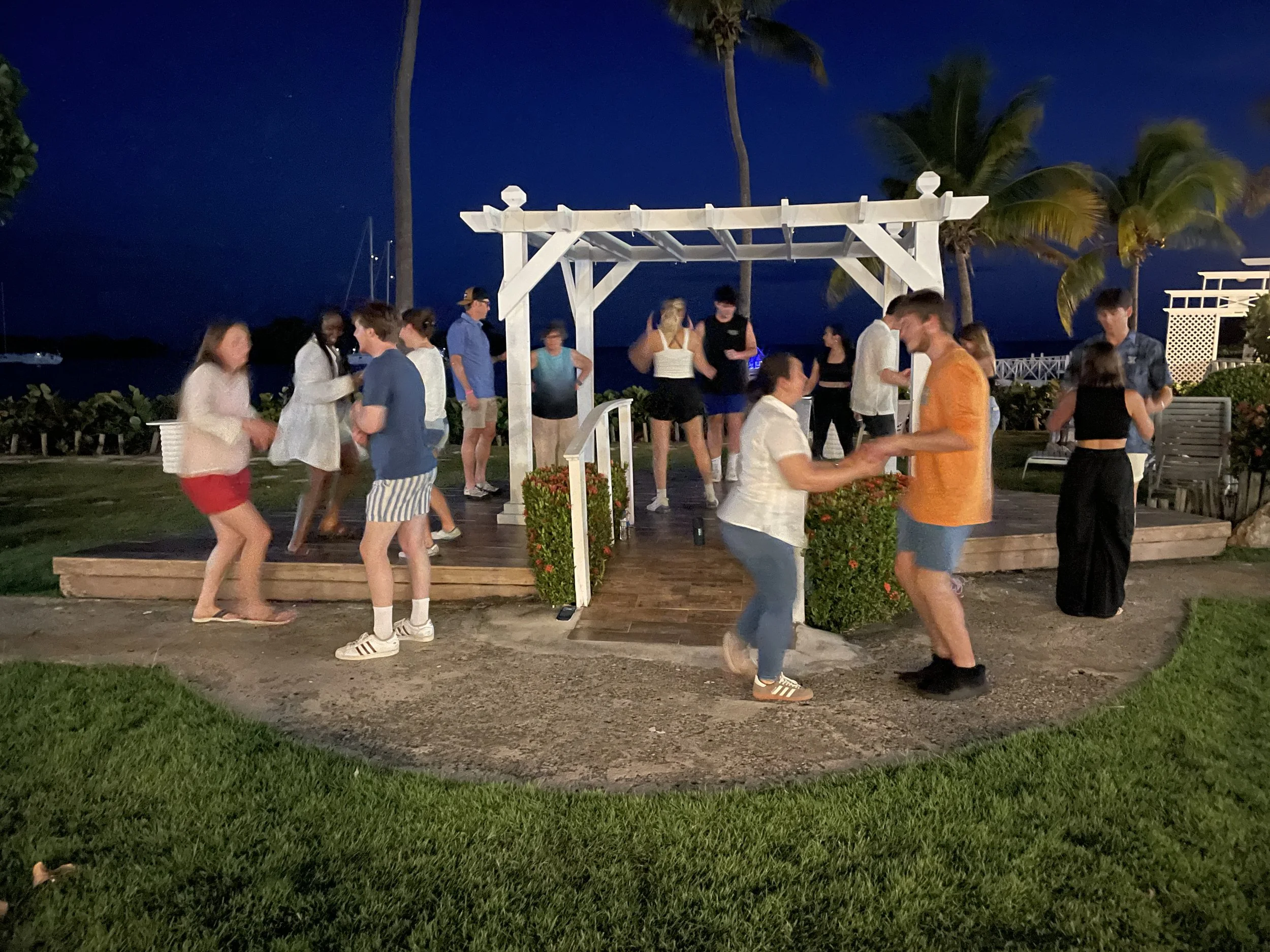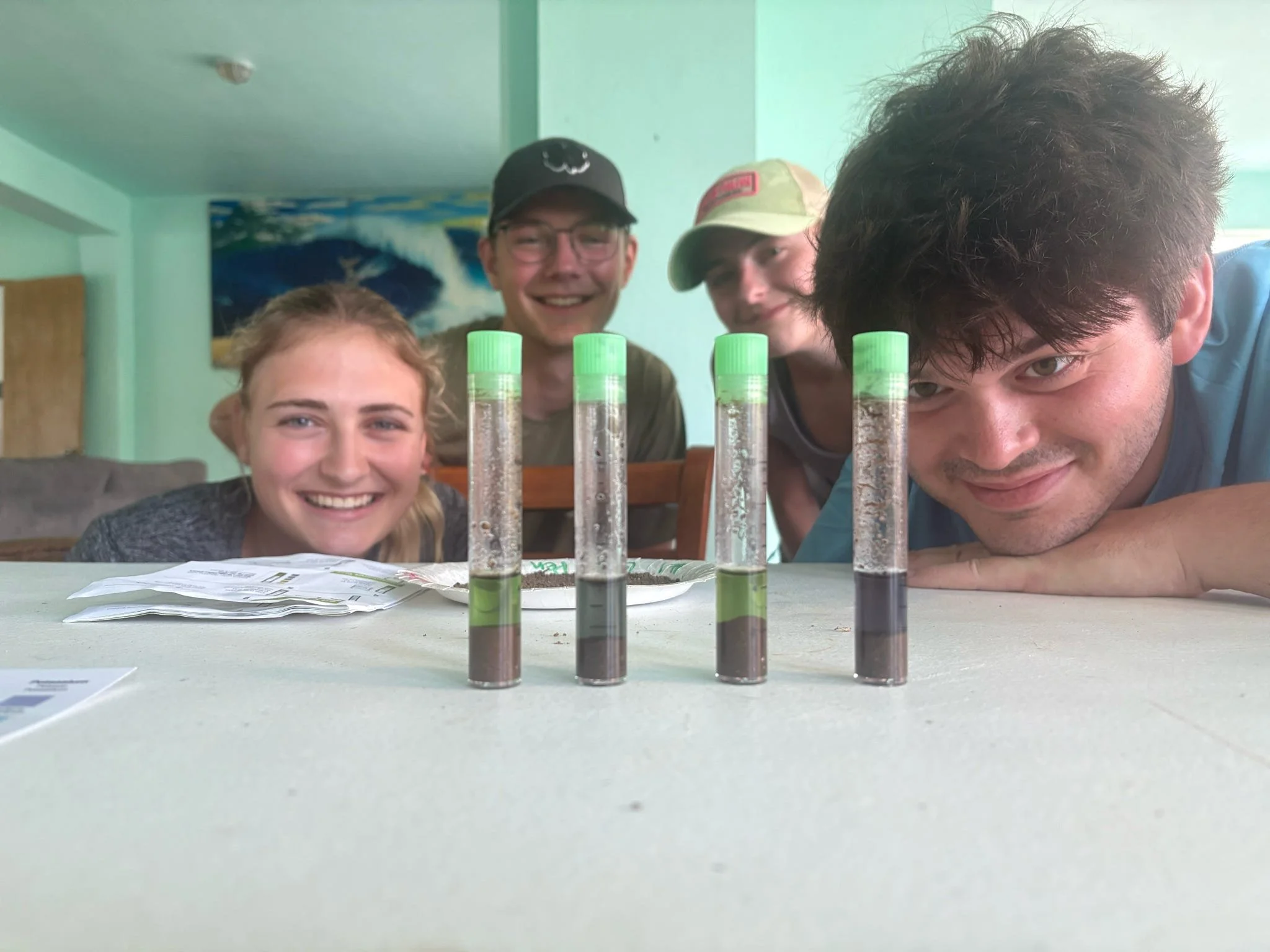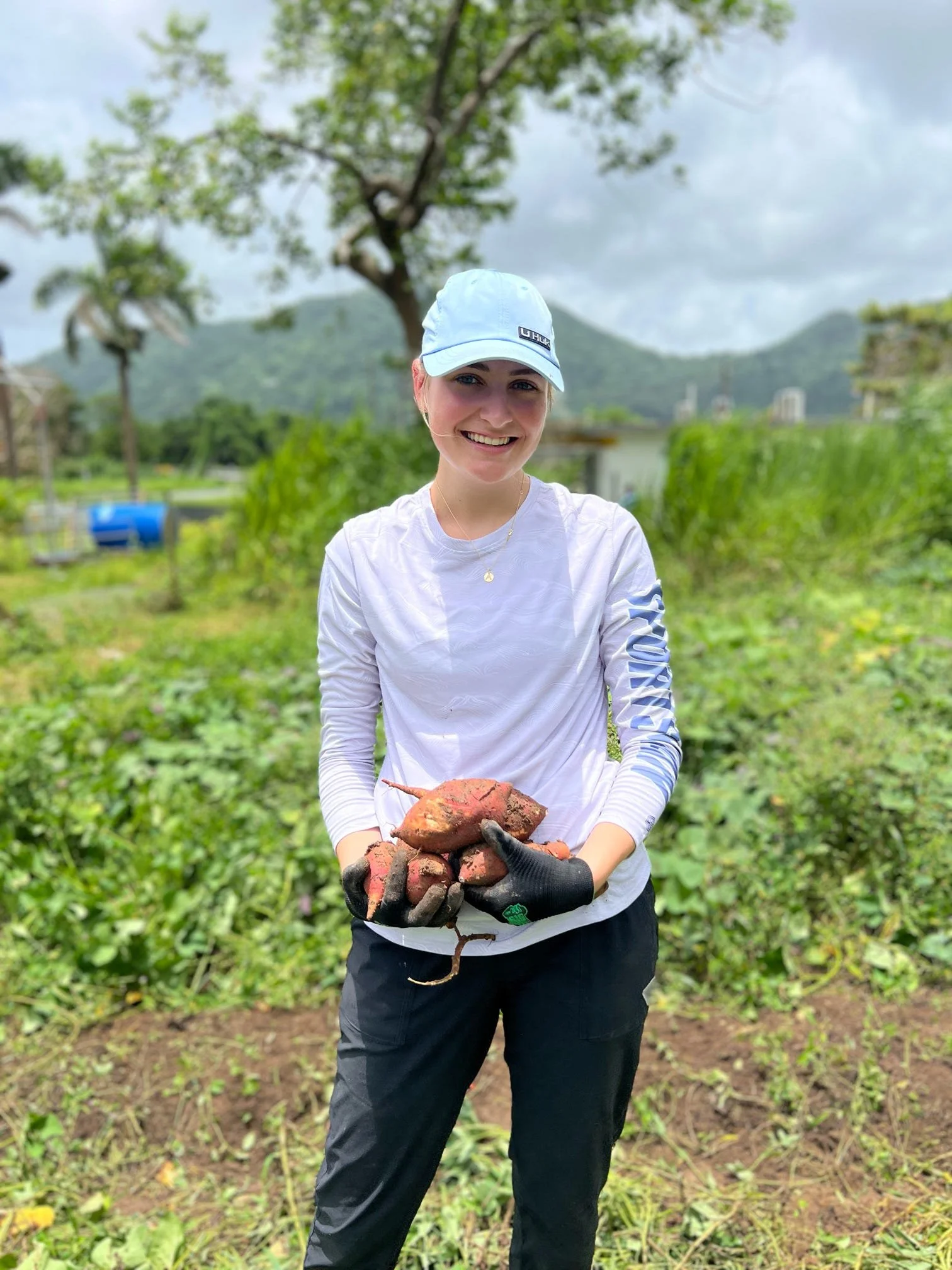Edition #6: Invaluable Educational Experiences: Academic Immersion in Puerto Rico
The Importance of Place-Based, Cross-Cultural Learning
In May, the Monte Azul Foundation had the pleasure of hosting an undergraduate group of students and two professors from Xavier University for the second consecutive year as part of an academic immersion trip to Puerto Rico. This tailored program was co-designed with an economics professor and a biology professor to create a deeply interdisciplinary, place-based learning experience over 10 days. Students earn six academic credits while experiencing nontraditional learning environments that bring their coursework to life.
Students at the Maricao State Forest, home to one of three colonies of the critically endangered Puerto Rican Parrots
During the trip, lessons from the biology course on tropical ecology enriched the concepts taught in the natural resource economics course. The group, composed of second- and third-year students from a variety of academic disciplines, engaged in lively discussions that sparked new insights and strengthened the interdisciplinary nature of the experience. This year’s itinerary included exciting new additions, such as visits to El Yunque National Forest and the El Hippie waterfall in Naguabo.
As students moved through each activity, the lines between academic subjects often blurred—leading to deeper, more holistic learning. Each day presented a new adventure, environment, and perspective. This fluidity and integration of disciplines embodies the power of experiential learning.
Why Experiential, Place-Based Learning Matters
Throughout my own undergraduate and graduate journeys, I learned that what happens outside the classroom is just as valuable—if not more so—than what happens inside it. These experiences inspired the design of our immersion program.
The ten days in Puerto Rico pass quickly—not only because students are busy from sunrise to sunset, but because they are constantly learning, doing, and reflecting. Students don’t spend more than two nights in one place. Instead, they travel through rural and often remote communities that most tourists never see. In fact, 66% of visitors to Puerto Rico never leave the San Juan metropolitan area. While our groups begin and end in San Juan, the majority of time is intentionally spent in the island’s diverse ecological and agricultural regions.
Students visit El Faro on the Southwest Coast of Puerto Rico - learning to identify bird species and the ecological importance of the salt flats.
Learning Across Puerto Rico’s Diverse Ecosystems
Puerto Rico—just 100 miles long and 30 miles wide—contains an astonishing variety of landscapes and microclimates. Our programs take students to:
The high-altitude coffee-growing mountains of the west
Mangroves, salt flats, and the bioluminescent bay of the southwest
The only tropical rainforest in the U.S. National Park system which boasts four different microclimates including a cloud forest at the high altitudes
Fertile agricultural valleys like Yabucoa
Coastal ecosystems and small-scale fishing communities
By experiencing these environments firsthand, students explore topics such as tropical ecology, agriculture, land use, conservation, and rural economic development in ways no textbook could replicate. They engage in meaningful conversations about Puerto Rico’s history, economy, and agriculture—applying concepts to real-world contexts.
As someone who has participated in many immersion programs, I have witnessed how transformative these experiences can be. They shape perspectives, influence career choices, and create life-long memories. Each year, I watch students grow as they challenge assumptions, broaden their worldview, and connect deeply with the land and people of Puerto Rico.
Students learn about critical mangrove habitat in La Parguera and are able to swim in the bioluminescent bay nearby - one of seven in the world.
Monte Azul’s Academic Immersion & Study Abroad Programs
At the Monte Azul Foundation, we design and host academic immersion and study abroad programs in Puerto Rico that connect students and faculty to real-world experiences in sustainable agriculture, agroecology, tropical ecology, community resilience, and rural economic development among other fields.
Through hands-on learning at our demonstration farms in Yabucoa and Maricao, participants engage directly with tropical food systems—studying agroforestry, regenerative agriculture, local food hubs, value-added processing, hydrological cycles, and more.
Each program blends academic instruction, field research and farm visits, service learning and community engagement, cultural and language immersion with adventure and exploration.
Students earn academic credit while contributing to meaningful local projects that support farmers and rural communities.
Students learn about shade grown cacao and how cacao beans are turned into chocolate at a historic living museum called Hacienda Buena Vista - owned and operated by Para La Naturaleza.
Custom Programs Designed with Universities
We collaborate with universities across the United States to co-create short-term or multi-week programs, offering: Faculty-led courses, Monte Azul–instructed courses, and Hybrid models with shared teaching
The itinerary is tailored to the academic goals of the visiting institution. Programs immerse students and faculty in Puerto Rico’s microclimates and unique ecological systems—allowing classroom concepts to come alive through direct application.
While each trip is customized to the goals of the visiting institution, programs often revolve around one or more core academic themes.
Tropical Ecology and Natural Resource Economics invites students to study biodiversity, ecosystem services, and how environmental change shapes agricultural livelihoods.
Tropical Agroforestry and Agroecology explores shade-grown coffee and cacao systems, mixed cropping, soil health, and carbon sequestration as climate-smart agricultural strategies. A program on
Decolonization: Food, Energy, and Water examines Puerto Rico’s complex colonial history, resource dependency, food sovereignty, and the island’s ongoing transition toward energy resilience.
Sustainable Agriculture and Disaster Recovery, often service-oriented, immerses students in community-led projects and highlights how farmers prepare for and recover from hurricanes and other climate-related shocks.
Beyond academics, cultural and language immersion is a core component of every program. Students participate in traditional music and dance workshops (such as salsa), enjoy gastronomic tours and farm-to-table meals, and take part in cooking classes featuring local ingredients. They explore historical towns and heritage sites, engage in meaningful conversations with farmers, entrepreneurs, and community leaders, and practice Spanish through daily interactions. This holistic experience deepens cultural understanding, fosters empathy, and builds global citizenship in ways that traditional classroom settings cannot replicate.
Students learning how to dance the Salsa - the widely popular Latin dance that has been heavily influenced by Puerto Rican artists and is of immense cultural value locally
Why These Programs Matter Now More Than Ever
Sadly, experiential learning and study abroad programs are often the first to be cut during times of economic pressure—something many institutions are currently facing. At Monte Azul, we believe deeply in their impact. That is why we are doubling down on our academic immersion programs.
These programs don’t just benefit students—they support local farmers, rural economies, and community-based development in Puerto Rico.
During the Tropical Ecology class students learn how to take soil samples and test for nutrient deficiency, pH and drainage qualities.
Let’s Build the Next Transformative Experience
If you are a university student, faculty member, study abroad coordinator, or administrator, we would love to work with you to design a program tailored to your academic goals.
If you know someone at your alma mater or university who might be interested in partnering with us, please connect us!
One of the best ways to support our mission—and promote transformative education—is to help us grow this program and reach more students and institutions across the country.
Together, we can create life-changing academic experiences that bridge cultures, strengthen rural communities, and inspire the next generation of leaders. Contact us to start designing your program today.
Students learn what it takes to grow local produce depending on the season. This time students led the sweet potato harvest and were able to try one of the seven local varieties grown at Monte Azul headquarters in Yabucoa, Puerto Rico.
